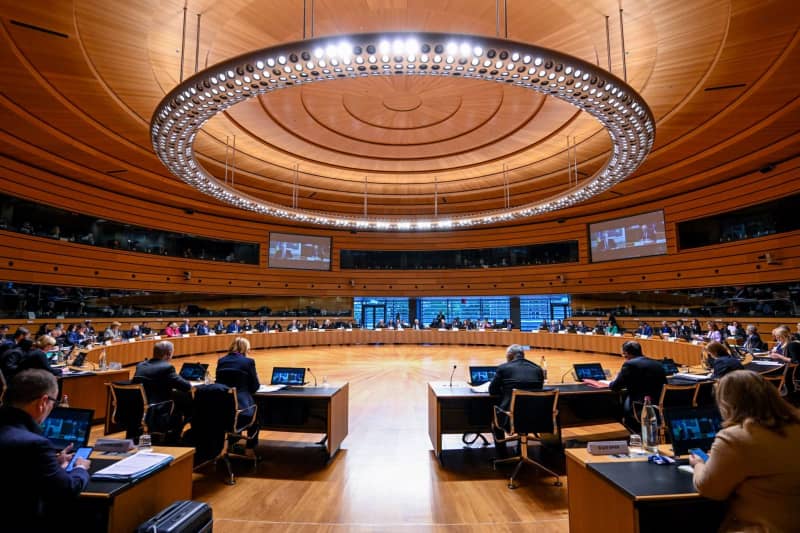EU foreign ministers on Monday adopted sanctions against Iran for supplying Russia with ballistic missiles for use in Ukraine, diplomats told DPA.
The EU sanctions target companies and individuals involved in Iran’s ballistic missile program and the supply of these and other weapons to Russia.
The European Union had previously warned Iran several times against passing on ballistic missiles to Moscow and considers this step as breaking a new taboo.
Iran has strongly denied supplying Russia with these weapons. According to Tehran, the country has strategic cooperation with Moscow, although this has nothing to do with the war in Ukraine. Tehran claims that providing military aid to warring parties is inhumane.
One of the targets is the Iranian state airline Iran Air. Britain, Germany and France have already announced they are working on sanctions against the company.
The EU sanctions, which include an asset freeze in the bloc and a travel ban on individuals, will come into effect as soon as they are published in the EU’s Official Journal, a register of EU laws.
EU foreign ministers meet to debate the escalating conflict in the Middle East and the EU’s efforts to support Ukraine against the Russian invasion despite Hungarian resistance.
The bloc also plans to hit Russian actors and organizations accused of destabilizing Moldova’s democracy and security with new sanctions ahead of a crucial referendum on EU membership later this month.
The role of Iran and its regional allies Hezbollah in Lebanon and Hamas in Gaza will be the focus of the foreign ministers’ meeting in Luxembourg.
The EU is struggling to find an answer that can help prevent the conflict from turning into a full-scale regional war in the Middle East.
Top EU diplomat Josep Borrell expressed frustration at divisions within the bloc over an increasingly tense conflict in the Middle East, especially over criticism of Israel.
“It takes too long to say some things that are very clear,” he said upon arrival.
“It is quite clear that we must be against Israeli attacks on UNIFIL, especially since our soldiers are there,” he said, referring to a joint EU statement on recent attacks on the UN peacekeeping mission in southern Lebanon, issued on the eve of the meeting. .
Borrell also said EU countries are at odds over arms supplies to Israel, after Spain called for an embargo.
“Member States are strongly divided,” he said, adding that other EU countries are in favor of supplying more weapons to Israel.
Another major problem is Hungary’s one-and-a-half-year blockade of an important EU military aid policy to Ukraine, the European Peace Facility (EPF), worth 6.6 billion euros.
Budapest does not want to send weapons to Ukraine, believing this will only prolong the war.
“Frankly, it takes a lot of time, it’s a lot of money, and it undermines our political will to support Ukraine on any front,” an EU official said, in a sign of the EU’s growing impatience with Hungary.
The bloc’s diplomatic arm, the European External Action Service, has devised a plan to make contributions to the EPF fund voluntary instead of mandatory, as a technical solution to Hungary’s opposition.
An EU diplomat said Hungary has shown willingness to agree to this solution.
The new Ukrainian Foreign Minister Andrii Sybiha spoke via video link with the EU foreign ministers. Borrell welcomed his contribution in a post on X and promised new arms shipments to Ukraine.
British Foreign Secretary David Lammy is also in Luxembourg, the first time a British foreign secretary has attended a meeting of EU foreign ministers alone since Britain left the EU in 2020.







